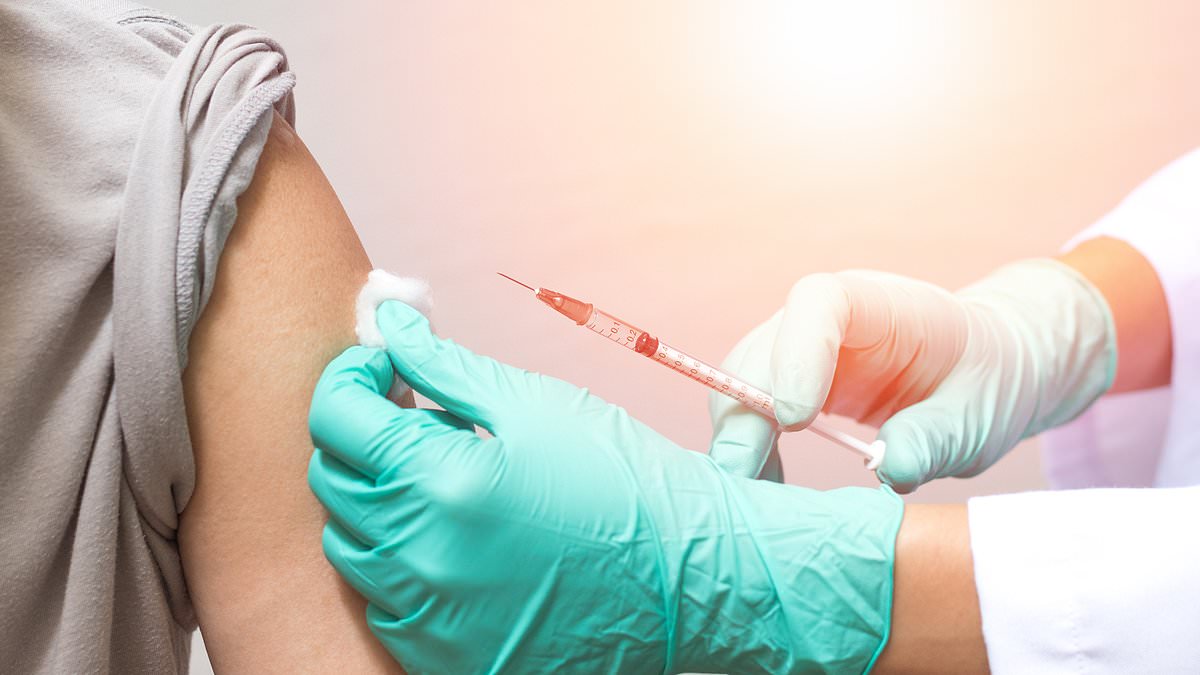By Editor Zoe Hardy
Health chiefs issue urgent warning as vital vaccine is ‘out of stock’ in the UK
READ MORE: Experts warn Covid vaccine may trigger deadly brain inflammation
By ZOE HARDY
Published: 10:36 BST, 1 July 2025 | Updated: 10:41 BST, 1 July 2025
Holidaymakers may be at risk of contracting a deadly infection that could make their eyes bleed due to an extreme shortage of the vaccine that protects against it.
The yellow fever jab is predicted to be unavailable for the next two to three weeks, according to a report published by the Foreign Office.
Yellow fever is a serious and life-threatening infection predominately spread by mosquitos in certain parts of Africa, South and Central America and the Caribbean.
Whilst most people who contract the viral infection experience mild flu-like symptoms before making a full recovery, in some cases it can be fatal.
Patients who develop a severe illness with fever, jaundice—yellowing of the eyes and skin—dark urine, stomach pain and bleeding for from the eyes, nose, mouth or stomach are at significant risk of death, the NHS warns.
The National Travel Health Network and Centre (NaTHNaC), a UK based organisation that works closely with the Foreign Office, recommends anyone travelling to these countries to get vaccinated against the infection.
However, Sanofi, the manufactures of the yellow fever vaccine have now warned that it could be out of stock for up to three weeks, putting travellers at serious risk.
The yellow fever vaccine—which costs around £70—is offered to anyone over the age of nine months who is travelling to a high-risk area, or a country that requires certification of vaccination.
The yellow fever vaccine is an injection of the live virus into the arm which triggers an immune response against the virus. This response can protect against infection for life
Yellow fever is a serious infection spread by mosquitos found in certain areas of South and Central America, Africa and the Caribbean. The mosquitoes that carry the yellow fever virus bite during the day
Current guidelines advise travellers to get vaccinated at least 10 days before travel, to allow enough time for the vaccine to work.
For most people, the vaccine should provide lifelong protection against yellow fever, but a further dose is recommended to travellers who are at a higher risk of illness.
This includes anyone who was vaccinated under the age of two, pregnant women, and those living with HIV.
Whilst some countries require proof of vaccination—which is thought to be a highly effective method of preventing the spread of infection—for some destinations, it is simply recommended.
Health officials have urged travellers to contact their local vaccination center who should be able to advise whether vaccination is appropriate.
Where vaccines are unavailable, health professionals are advised to contact the NaTHNac to discuss available options.
The NHS says it is also vital to prevent mosquito bites—through using insect repellent and wearing protective clothing— as this can ward off the bugs carrying the infection, as well as other serious diseases.
The most recent reported case of yellow fever in the UK was in 2018, after a traveller returned from Brazil.
Professor Martin Gore (pictured above) died at just 67-years-old after receiving the jab. Deaths from the yellow fever vaccine are very rare, and the befits of getting vaccinated are said to outweigh the risk which is higher among older people
Prior to this only 11 cases were reported in travellers from Europe and the United States who visited high risk area between 1970 and 2015, according to official figures.
However between 2016 and 2018 there was a sharp rise in travel associated cases of the infection—most likely linked to outbreaks in Brazil.
While the virus cannot spread person to person, if you are infected, a mosquito can bite you and then infect someone else.
According to the World Health Organisation (WHO), 777 cases of yellow fever were reported across eight Brazilian states during this time, tragically killing 261 people.
Experts issue warning that Covid vaccine may trigger deadly brain inflammation
An estimated 200,000 cases of yellow fever are reported worldwide each year, including 30,000 deaths.
Whilst vaccination is thought to be the best method to prevent against infection—with more than 600million doses of the vaccine administered worldwide—the yellow fever vaccine can cause serious side-effects.
After having the vaccine, up to a third of people experience headache, muscle pain and a high temperature.
These side-effects usually pass within a couple of weeks but in very rare cases the vaccine can cause life-threatening organ damage.
In 2019 one of the UK’s leading cancer scientists, Professor Martin Gore, following a yellow fever vaccination.
Share or comment on this article:
Health chiefs issue urgent warning as vital vaccine is ‘out of stock’ in the UK
Add comment
